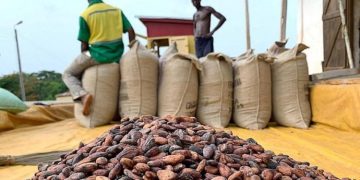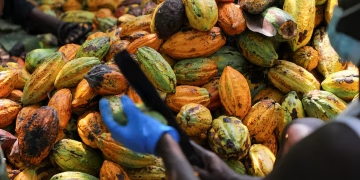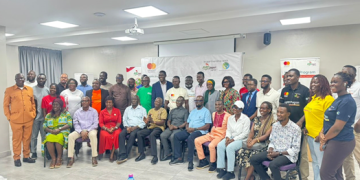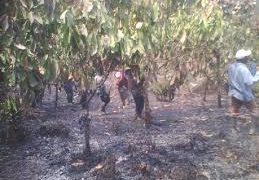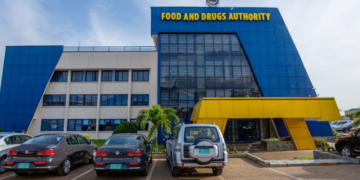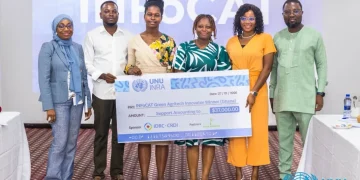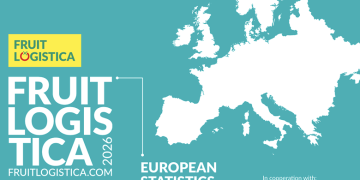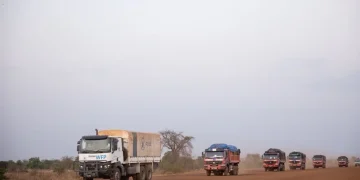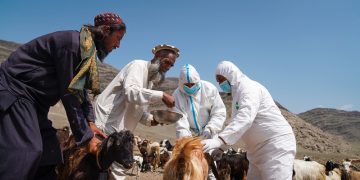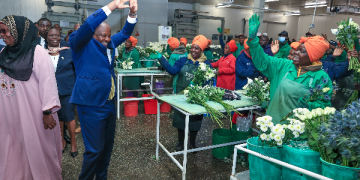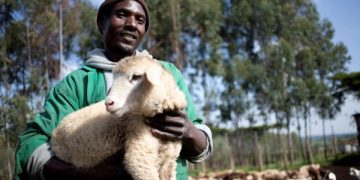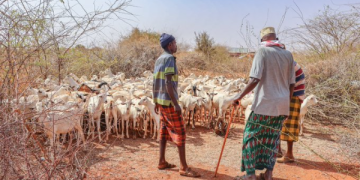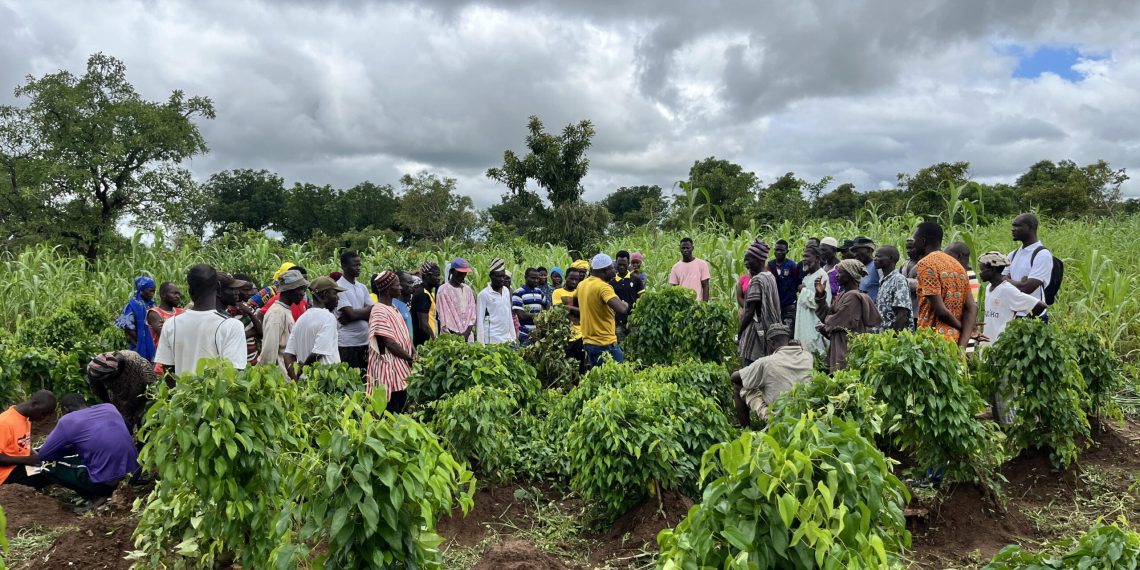The Council for Scientific and Industrial Research–Savanna Agricultural Research Institute (CSIR–SARI) is deepening farmer participation in the development and adoption of improved soybean varieties through an innovative on-farm demonstration held at Salaga in the Savannah Region.
The exercise, led by CSIR–SARI’s Soybean Breeding Team, forms part of the institute’s broader strategy to close the gap between research and on-farm application by ensuring that new crop varieties respond directly to farmers’ production realities.
The field demonstration, conducted under the Participatory Varietal Selection (PVS) approach, allowed farmers to evaluate, rank, and select improved soybean lines based on traits that matter most to them — including yield, pod clearance, maturity period, drought tolerance, and pest resistance.
According to Dr. Ophelia Asirifi Amoako, Agronomist and Senior Research Scientist at CSIR–SARI, the participatory model places farmers at the center of the research process.
“Farmers are not just end users of research outputs. They are partners in developing solutions that work for their fields,” she explained. “By involving them in varietal selection, we ensure that new soybean lines meet their preferences and are more readily adopted.”
The demonstration featured both “mother and baby trials.” The mother trial, managed by researchers, showcased improved agronomic practices such as row planting, correct spacing, and balanced fertilizer application. Meanwhile, farmers were given seed packages for their own baby trials to compare improved lines with their traditional varieties.
Over the years, farmers in northern Ghana have faced challenges including declining yields, poor soil fertility, and pest infestations — often linked to limited fertilizer use and poor planting methods. The new trials aim to change that by introducing practical, evidence-based solutions directly on farmers’ fields.
Dr. Charles Nelimor, Research Scientist and Soybean Breeder at CSIR–SARI, said the team also used the platform to demonstrate two new soybean lines — one with high pod clearance suitable for mechanized harvesting, and another with early maturity traits to help farmers adapt to erratic rainfall patterns linked to climate change.
Head of the Soybean Breeding Team, Dr. Francisca Addae-Frimpomaah, explained that the ultimate goal is to ensure that newly developed varieties move from research fields to farmers’ hands.
“We are not developing varieties to stay on the shelves. Our aim is for farmers to understand, adopt, and benefit from these improved lines once they are released,” she said.
Dr. Addae-Frimpomaah also appealed for a review of the current ban on soybean exports, arguing that the restriction has reduced market access for farmers.
“Many bulk buyers who used to export have stopped purchasing from local farmers, making it difficult for them to sell their produce. Lifting the ban will help create a ready market and encourage expanded production,” she added.
Farmers who participated in the demonstration described the experience as eye-opening. Mr. Osman Suleman, a farmer supporting the SARI team in field management, said the trials provided practical lessons that could transform production efficiency.
“We have seen real differences between our local varieties and the new ones — better growth, healthier plants, and high pod clearance. The demonstration has motivated many of us to change how we farm,” he said.
Mr. Suleman noted that harvesting remains a major challenge, as manual harvesting leads to delays and post-harvest losses. He called on the Ministry of Food and Agriculture and other partners to support farmers with mechanization, including planters and harvesters, to increase productivity.
Other farmers at the event echoed similar observations, noting that the improved varieties showed higher yields, better pod formation, and stronger plant vigor than their traditional crops.
Through the PVS approach, CSIR–SARI aims to strengthen farmer-research collaboration, accelerate the adoption of climate-resilient soybean varieties, and boost the profitability and sustainability of Ghana’s soybean sector.














